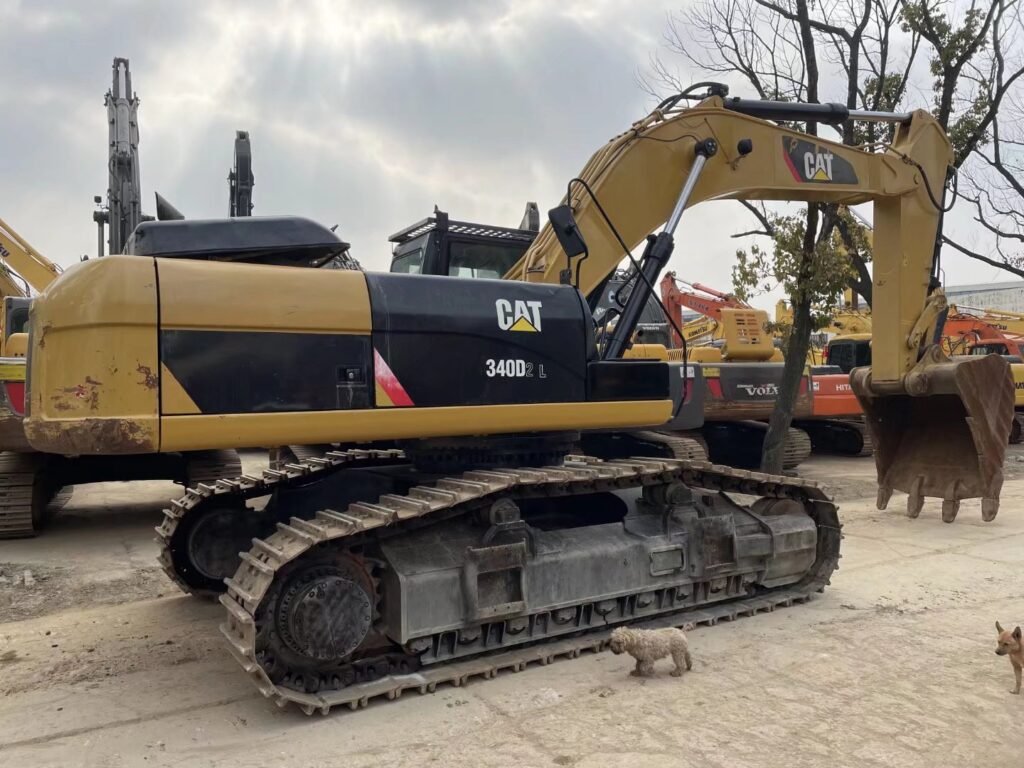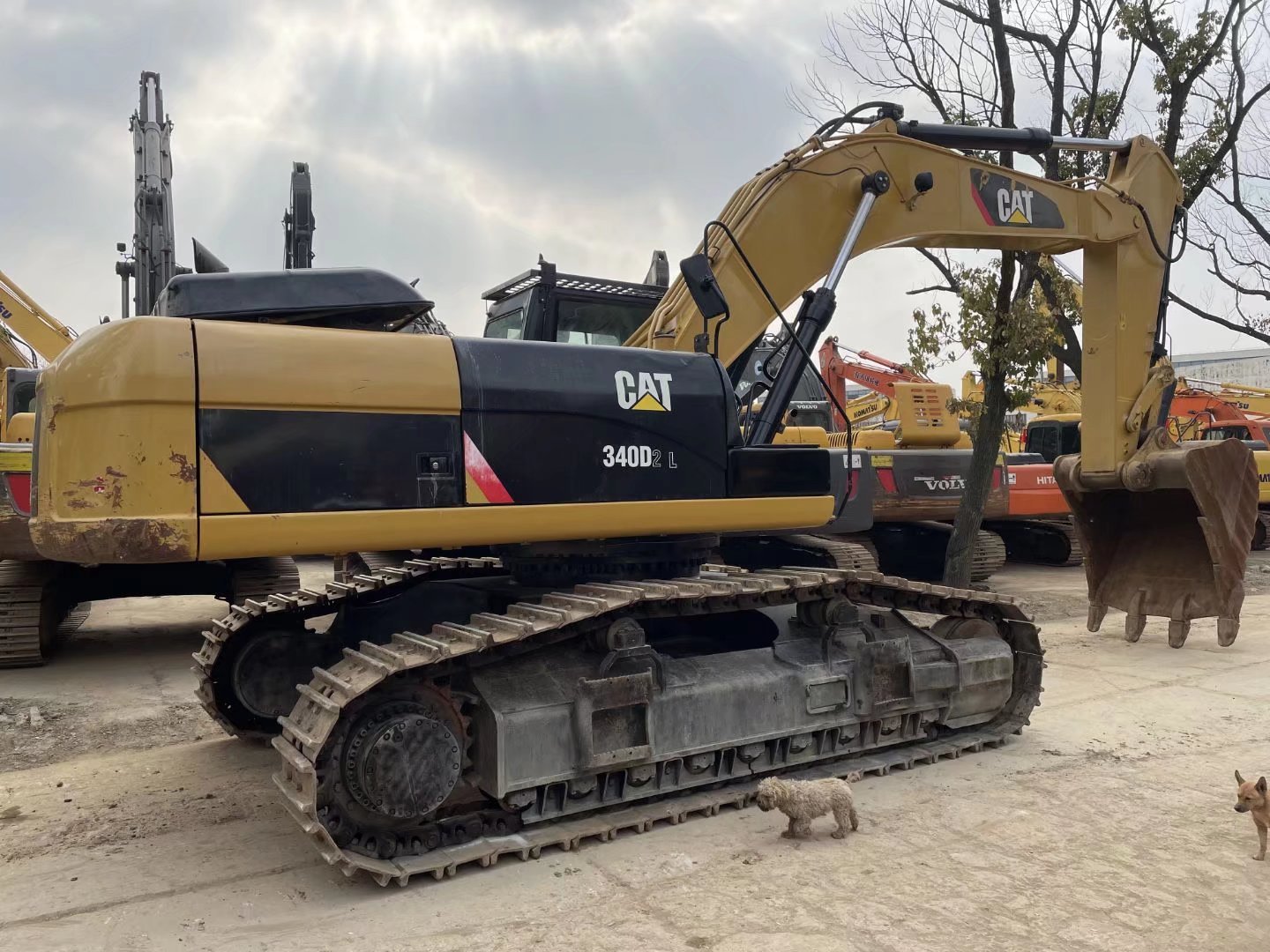I. Introduction
A. Current Market Situation of Used Excavators
In recent years, the used excavator market has matured alongside rapid construction development, becoming the preferred choice for many contractors. Used excavators not only come at a lower price but also meet diverse project requirements. Additionally, the variety of brands and models available in the market provides buyers with more options.
B. Importance of Choosing the Right Excavator
Selecting the appropriate excavator model and specifications is crucial for project efficiency and cost control. Suitable equipment can enhance work efficiency and reduce operating costs, while mismatched equipment may lead to delays and resource waste. Therefore, understanding how to choose the right excavator based on specific project needs is essential.
II. Understanding Project Needs
A. Analysis of Project Types
Different types of projects have varying requirements for excavators. For example:
- Earthwork Projects: Require larger bucket capacities and powerful engines to quickly move substantial amounts of earth.
- Demolition Projects: Typically need strong destructive capabilities and flexibility to adapt to different demolition scenarios.
- Mining Operations: Demand high efficiency and durability to withstand harsh working conditions.
B. Considerations for Working Environment
When selecting an excavator, it is important to consider the characteristics of the working environment:
- Terrain: Different terrains, such as mountains, plains, and slopes, have different stability and adaptability requirements for excavators.
- Soil Type: Varying soil types, such as sandy, clayey, or rocky, affect the performance and bucket capacity of the excavator.
- Climatic Conditions: Harsh weather (e.g., rainy seasons, winter) may impose additional requirements on the equipment’s efficiency and maintenance.
III. Excavator Models and Specifications
A. Main Types of Excavators
Understanding the characteristics and applicable scenarios of different excavator types is fundamental to selection:
- Crawler Excavators: Suitable for heavy loads and uneven ground, providing strong stability.
- Wheeled Excavators: Ideal for urban construction and relatively flat sites, offering high flexibility.
- Mini Excavators: Perfect for small space operations, such as narrow construction sites in urban areas.
B. Key Technical Parameters
When choosing an excavator, focus on the following technical parameters:
- Operating Weight: Affects the stability and operational capacity of the excavator.
- Bucket Capacity: Directly relates to excavation efficiency; larger buckets enable greater work volume in a given time.
- Engine Power: Higher power results in better performance and efficiency during operation.
IV. Inspection and Evaluation of Used Excavators
A. Visual and Structural Inspection
Checking the appearance and structure of a used excavator is critical when purchasing:
- Look for visible wear, rust, or damage on the equipment.
- Inspect the hydraulic system, engine, and electrical systems to ensure there are no leaks or faults.
B. Performance Testing
Conducting performance tests and evaluations is essential to ensure equipment quality:
- Observe the operational performance, stability, and responsiveness during on-site testing.
- Pay attention to how the equipment performs under different working conditions to ensure it meets operational needs.
V. Cost and Budget Considerations
A. Purchase Cost Analysis
Evaluate the market price of used excavators and the factors influencing it:
- Understand market trends and compare prices of different brands and models.
- Consider the equipment’s age, maintenance history, and residual value.
B. Maintenance and Operating Costs
In the budget, consider not just the purchase cost but also long-term maintenance and operating costs:
- Estimate daily maintenance, servicing, and repair expenses.
- Factor in fuel consumption, parts replacement, and other operational costs to ensure a reasonable overall project budget.

VI. Supplier Selection and Transaction Process
A. Choosing a Reliable Supplier
Selecting a reputable supplier of used equipment is crucial for ensuring transaction safety:
- Research the supplier’s market reputation, customer reviews, and after-sales service capabilities.
- Prefer suppliers with valid business licenses and extensive trading experience.
B. Transaction Process and Considerations
Understand the key steps and considerations in the transaction process:
- Ensure a formal contract is signed, clearly outlining transaction terms, payment methods, and delivery timelines.
- Conduct a final inspection before delivery to confirm the equipment’s condition matches the contract.
VII. Conclusion
A. Key Factors in Purchasing a Used Excavator
Summarize the main considerations for choosing the right used excavator, including project needs analysis, model and specification selection, and equipment inspection and evaluation, ensuring informed purchasing decisions.
B. Recommendations for Ongoing Support and Services
Emphasize the importance of ongoing support and maintenance after purchase. Recommend regular equipment inspections and maintenance, maintaining good communication with suppliers to receive timely technical support and services.



